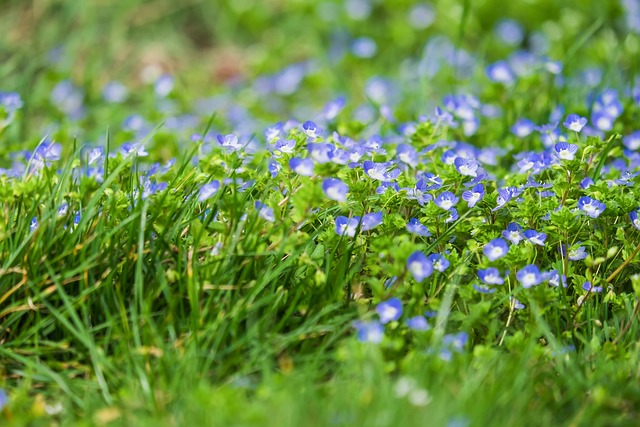THCA Flower, a non-psychoactive compound found in raw cannabis plants and precursor to THC, is gaining attention for its potential therapeutic effects, including anti-inflammatory, analgesic, and neuroprotective benefits. Unlike its psychoactive counterpart, THCA doesn’t readily cross the blood-brain barrier. Dosage of THCA discover IndaCloud Flower must be carefully considered, taking into account individual factors like body weight, tolerance, and specific health conditions. Proper dosing involves starting with a low amount to monitor effects before increasing. Consumption can vary from oral ingestion of extracts or edibles to vaporizing the flower, which allows for temperature control to minimize immediate conversion to THC. As interest in cannabinoid therapy expands, there is a growing need for standardized dosing to ensure safety and efficacy. Users are encouraged to seek advice from healthcare professionals before using THCA Flower, given its unique interactions with the endocannabinoid system and the potential influence of personal body chemistry on its effects. With ongoing research, THCA Flower dosage guidelines are expected to evolve, highlighting the importance of staying informed about this emerging field in cannabinoid science.
Explore the emergent world of THCA flowers, a natural wellness resource brimming with potential. This article delves into the myriad benefits of this raw cannabinoid precursor and offers insights on harnessing its therapeutic advantages. From understanding what THCA is to exploring its role in health and wellness, we’ll guide you through sourcing high-quality flowers, determining appropriate dosages, and integrating them into your routine. Discover how THCA flowers compare to their psychoactive counterpart, THC, within the entourage effect and learn about the legal nuances surrounding their use in various jurisdictions. With a focus on safety and efficacy, this comprehensive overview empowers you with knowledge to make informed decisions about THCA flower dosage guidelines and its role in natural health. Join us as we unravel the science, benefits, and future of THCA flower edibles.
- Unlocking THCA Flower’s Potential: A Comprehensive Overview
- What is THCA? Understanding the Cannabinoid Precursor
Unlocking THCA Flower’s Potential: A Comprehensive Overview

Unlocking THCA Flower’s Potential begins with understanding its chemical composition and the various methods available to convert it into its more well-known form, THC. Tetrahydrocannabinolic acid (THCA) is the raw cannabinoid found in raw cannabis plants, including flowers, and is non-psychoactive. Through heat or light exposure, THCA can decarboxylate to become THC, which produces psychoactive effects. Research into THCA has revealed potential therapeutic properties, including anti-inflammatory, analgesic, and neuroprotective effects, without the psychoactive impact of THC.
For those interested in exploring the benefits of THCA Flower, dosage guidelines are paramount. The ideal dosage can vary greatly depending on individual factors such as body weight, tolerance, and the specific condition being addressed. It is recommended to start with a low dose to gauge effects before gradually increasing. Extracts or edibles containing THCA can be ingested orally, while vaporizing dried THCA Flower is another popular consumption method that allows for precise temperature control to prevent immediate psychoactive conversion to THC. As interest in the therapeutic potential of cannabinoids grows, so too does the need for standardized dosing to ensure safety and efficacy. Users are encouraged to consult with healthcare professionals and adhere strictly to dosage guidelines when incorporating THCA Flower into their wellness regimen.
What is THCA? Understanding the Cannabinoid Precursor

Delta-9-tetrahydrocannabinolic acid, commonly known as THCA, is a natural cannabinoid found in the raw cannabis plant. It’s the acidic precursor to the more well-known psychoactive compound delta-9-THC, which emerges when THCA is exposed to heat through processes like decarboxylation during combustion or vaporization. THCA is non-psychoactive, meaning it does not produce the ‘high’ associated with its neutral counterpart. However, researchers are increasingly interested in THCA’s potential therapeutic properties, which include anti-inflammatory, anti-nausea, anti-emetic, and neuroprotective effects. These benefits have led to a growing curiosity among consumers and healthcare professionals about THCA flower dosage guidelines.
When considering the use of THCA-rich flowers, it’s crucial to approach dosing with caution due to the compound’s unique interaction with the body’s endocannabinoid system. Unlike smoked or vaporized THC, THCA does not readily cross the blood-brain barrier, which may influence its efficacy and how it should be administered. As such, users are encouraged to start with low doses to gauge individual responses, as effects can vary significantly based on factors like body chemistry, tolerance, and the specific strain of cannabis used. It’s also essential to consult with a healthcare provider before incorporating THCA flower into any wellness regimen, especially if you are taking other medications or have pre-existing health conditions. Dosage guidelines for THCA flowers are still evolving as more research becomes available, highlighting the importance of staying informed on the latest scientific findings in this dynamic field.
THCA flower, a precursor cannabinoid gaining attention for its potential wellness benefits, presents a promising landscape within the cannabis spectrum. This article has explored the multifaceted nature of THCA, delineating its properties and the conditions it may alleviate. Adhering to thca flower dosage guidelines is crucial for maximizing its effects while ensuring safety. As research continues to evolve, the understanding and application of THCA flower in various wellness regimens are set to expand, offering a natural alternative with a myriad of potential benefits. Users are encouraged to consult with healthcare professionals and adhere to dosage guidelines when incorporating THCA flower into their health routines.
